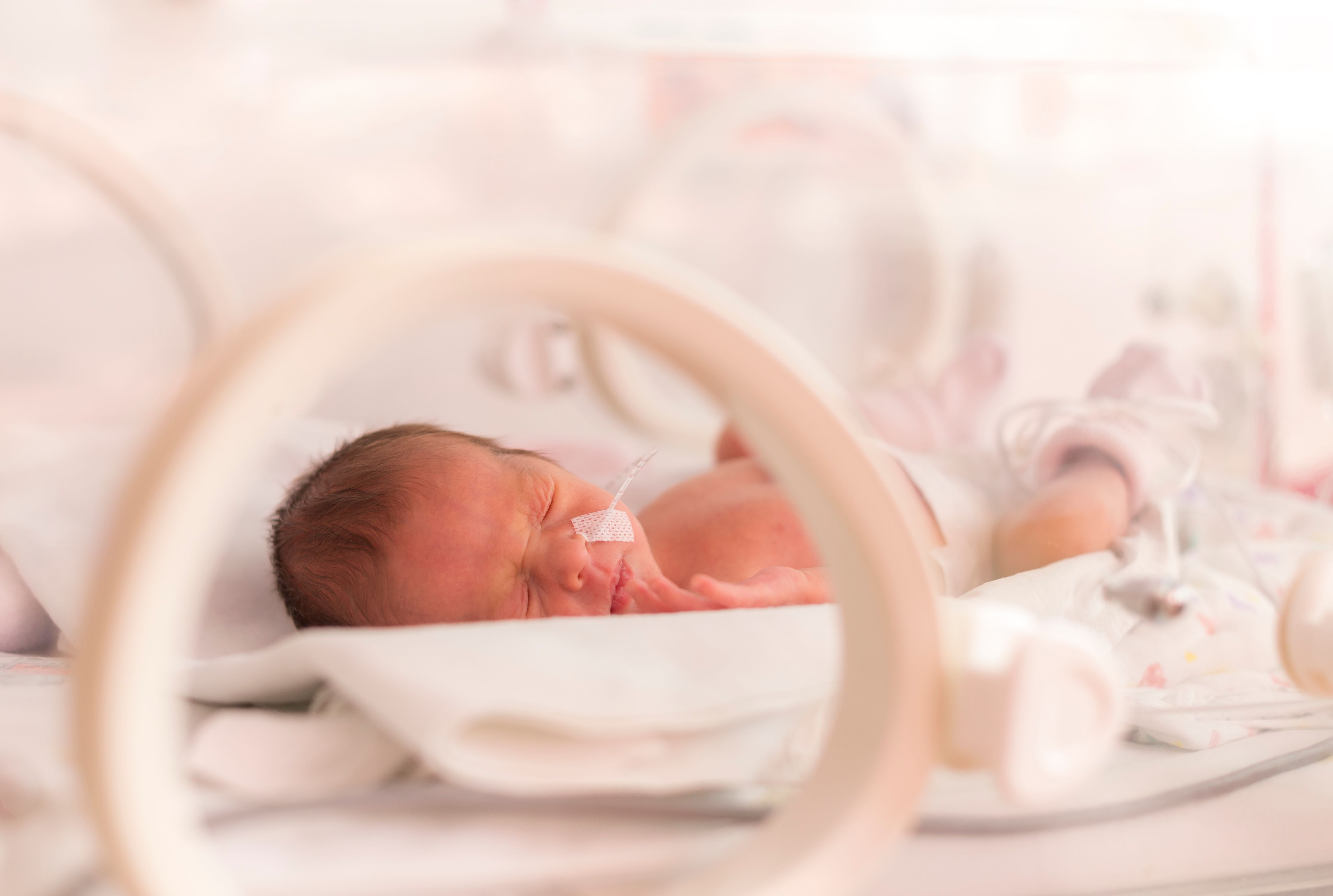Takeaways
- Stress ulcer prophylaxis (SUP) may not prevent gastrointestinal bleeding (GIB) associated with corticosteroid use in neonates.
- A retrospective study found no significant difference in GIB rates between neonates receiving SUP and those who did not.
- Hydrocortisone, commonly used for neonatal hypotension, prompts consideration of SUP due to its association with GIB.
- SUP did not increase adverse effects, indicating limited preventive benefits for GIB in neonates.
Because of gastrointestinal bleeding (GIB) associated with corticosteroids used to treat hypotension in neonates in the neonatal intensive care unit (NICU), stress ulcer prophylaxis (SUP) could be considered.
According to a poster abstract presented at the American Society of Health-System Pharmacists Midyear Clinical Meeting & Exhibition held in Anaheim, California, SUP did not appear to provide benefit for prevention of GIB and did not increase SUP-associated adverse effects.
Hydrocortisone is typically used to treat hypotension in neonates in the neonatal intensive care unit (NICU). SUP could be considered to prevent GIB, given corticosteroids’ association with GIB.
Studies evaluating the benefit or risk of SUP in young infants and neonates is limited, leading to a retrospective study to determine the incidence of GIB associated with hydrocortisone in neonates and infants less than 3 months of age aimed to compare rates between those with or without SUP.
The study included neonates in the NICU receiving more than 1 dose of hydrocortisone for hypotension between July 1, 2017, to June 30, 2022.
If patients had hypoxic ischemic encephalopathy, received extracorporeal membrane oxygenation, required cardiac surgery, were anticoagulated, or “expired within 2 days of initiating hydrocortisone,” they were excluded.
The primary outcome was to determine the incidence of GIB, with secondary outcomes including, comparing GIB incidence, adverse drug events commonly associated with SUP, and clinical outcomes between participants who did and did not receive SUP.
According to the abstract, a P value less than 0.05 was considered significant.
There were 233 patients included in the study. Twenty-two (9.4%) had GIB that occurred after a median (IQR) of 6 days of hydrocortisone. Another 54 participants (23.2%) received SUP, and histamine-2-receptor antagonists were used in 52 (96.3%) of these patients.
No significant difference in the rate of GIB was observed between patients with (n = 6 [11.1%]) and without SUP (n = 16 [8.9%]) (P = 0.632).
There were no significant differences for SUP-associated adverse effects between those who did and did not receive SUP, including for, “bacteremia (n = 12; 22.2% versus n = 43;25.7%, P = 0.605), urinary tract infection (n = 12; 22.2% versus n = 43; 24.0%, P = 0.785), meningitis (n = 1; 1.9% versus n = 4; 2.2%, P = 1.00), VAP (n = 6; 11.1% versus n = 25; 14.0%, P = 0.588), NEC (n = 6; 11.1% versus n = 21; 11.7%, P =0.901), or thrombocytopenia (n = 7; 13.0% versus n = 20; 11.2%, P =0.452),” respectively, according to results.
According to the study, it was concluded that SUP did not appear to provide prevention benefit for GIB and did not “pose an increase in SUP-associated adverse effects.”
Reference:
Miller JL, Farmer C, Ropp D, Stephens K, Johnson P. Incidence of gastrointestinal bleeding with hydrocortisone in neonates and infants less than three months of age in the neonatal intensive care unit. Abstract. Presented at: Health-System Pharmacists Midyear Clinical Meeting & Exhibition held in Anaheim, California. December 3, 2023, to December 7, 2023.
